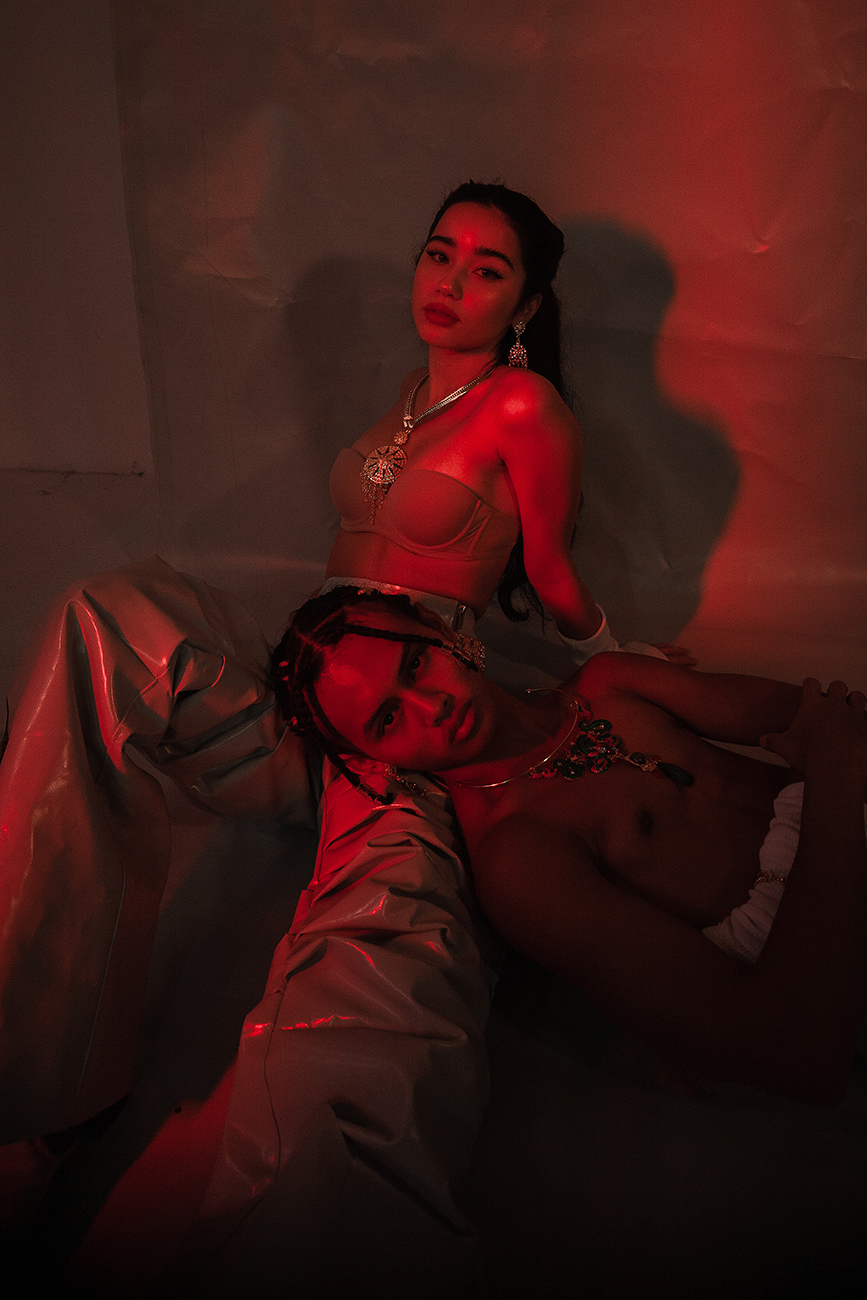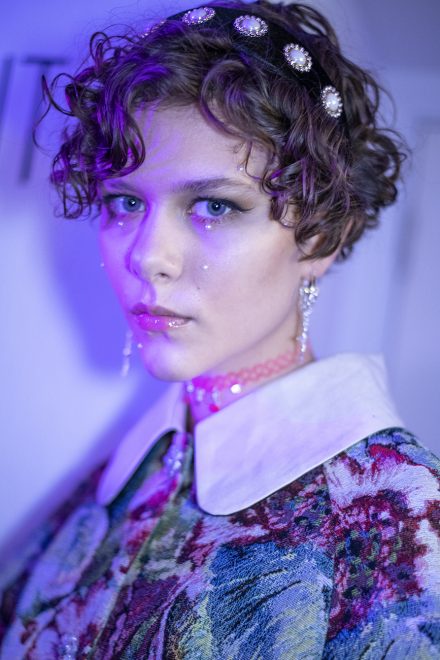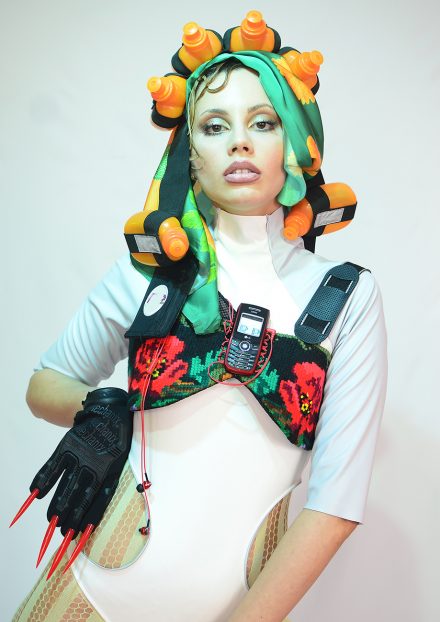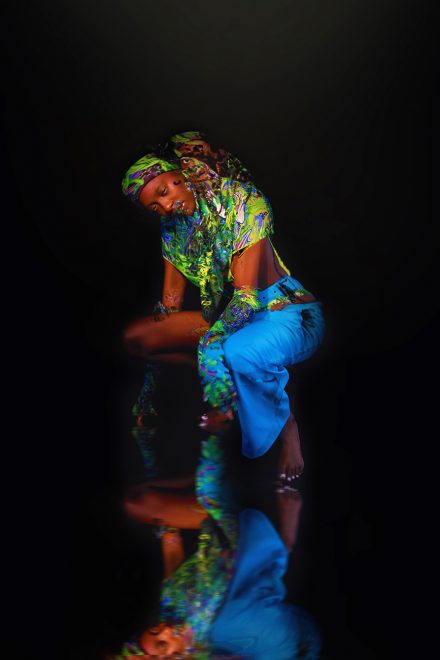 |
 |
Most designers tell stories of how they always dreamed of working in the creative industry and struggled to imagine themselves in any other profession. However, for Designer Wirat Tengchiang, that wasn’t quite the case. The burning desire to pursue a career in fashion wasn’t so innate.
Quite differently, Wirat explained how creativity had always been present around him. Yet, it wasn’t until later in his life that he started considering fashion as an option. He describes the process as being inescapable; as if destined for design without even realising he was. “At some point, I realised I had many visions that sparked something in me to put them into designs and that ultimately led me to attend fashion school; to take on and explore the industry of creatives”.
Whilst studying in Vienna, Wirat founded his brand TENWi. The label works to establish streetwear within a high-fashion context, whilst also defying society’s conventional ideas about gender. In Wirat’s own words: “A sublime melange of masculinity and femininity reveals outlandish references of unisex looks”. Tackling cross-cultural issues such as gender, identity, spirituality and even environmentalism, through the creation of eccentric unisex wear, TENWi is by far a bold and forward-thinking brand.
“My tutors would always refer to me as a ‘maximalist’, trying to put every thought and concept possible into one design. I brought this persona with me throughout my growth. I am proud because it’s what sets me apart from others in the fashion game. I am not trying to be someone else. I am fulfilling my impulses and values into an outlandish design language”.
In this feature article, Wirat shares TENWi’s latest collection ‘Reincarnation‘, unveiling the ethical design practices and inspirations behind it.
Wirat began designing his graduate collection Reincarnation back in 2019, after being informed by his tutor about the United Nation’s ACT NOW Fashion Challenge. He believed it would be an excellent opportunity to commit to a zero-waste collection and advocate for transforming the fashion industry; pushing for it to become more environmentally conscious. Wirat was the only student from his class who decided to volunteer for the UN’s project.
Besides his commitment to the UN’s challenge, he also chose to dedicate his Thesis to the sustainable fashion movement. In his Thesis, Wirat shed light on the research and practices he had encountered whilst creating this zero-waste collection. This included upcycling concepts, extensive material and cultural research.
“Reincarnation of Fashion promotes essential environmental aspects by implementing Sustainable Development Goals of the United Nations (SDG 12). The collection originates from my Thesis. It exclusively deals with the influence of Theravada Buddhism on various subcultures such as art, fashion, and the music industry. Overall, the collection’s mission is to motivate young people; especially Generation Z, and create awareness for sustainable development by creating conscious attraction”.
“As I believe deeply in the values of Thai culture of handling resources economically and respectfully, the main goal of this unisex wear is to extend the life usage of deadstock textiles and disposable materials. All fashion designs are made out of repurposed materials, such as truck tarp, rice packing material, second-hand tank tops, table cloths and hand-selected vintage textiles”.
Although Wirat was raised in Austria, he was born in Thailand. Before the pandemic, he informed Œ that he frequently reconnected with his roots by spending his time visiting family in Phuket. When Wirat is back in his homeland, that’s when he believes he is inspired most. His homage to his Thai heritage can be evinced in his designs.
The blending of subcultures is what makes TENWi designs so distinctive. ‘Reincarnation’ plays upon spiritual concepts and ideologies grounded in Thai Theravada Buddhism. Wirat upholds that the average person can learn from such philosophies to reshape the world for the better.
“I have always been proactive in showcasing my cultural heritage through fashion design. Traditional Thai details and deadstock textiles are repurposed with sustainability and function in mind. Throughout this fashion input, I am sharing admiration for Thai and Buddhist culture to inspire people. Akin to Theravada Buddhism, the graduation collection strives to be a paragon of sustainability and longevity”.
“I still remember my initial reaction, discovering how relevant the philosophy of Theravada Buddhism was becoming in modern society. Since many atheists believe in reincarnation rather than in god, my understanding of Buddhism’s relevance to civilisation has changed. I have awareness for how it goes hand-in-hand with synergies of traditional and contemporary thoughts. People should understand that Buddhism is not representing a religion – but rather a lifestyle and philosophy”.
“We as a society should be more conscious with our decisions, selecting garments reflecting respect for people, our environment and artistic heritage to preserve the very long history of fashion design. The future of fashion is our responsibility”.
When asked about what’s in store for TENWi, Wirat told Œ:
“Right now, I am working on more freelance projects whilst focusing on new upcycling concepts and material research. I also want to put more effort into speaking up on social media regarding these issues. Staying true to my support for the slow-fashion movement, I am not rushing myself to manufacture regular collections for each season”.
“The goal, for now, is to collaborate with international stylists and photographers for artistic projects. Recently I have shot a lookbook and fashion movie in collaboration with local artists, which will be released very soon. Finally, I will collaborate with local tailoring studios to manufacture my first capsule collection. The launch of the official TENWi website will be announced very soon. As for the rest, you will see very soon…”
 |
 |
“ในสังคมของเราควรมีสติมากขึ้นในการตัดสินใจและเลือกเสื้อผ้าที่สะท้อนถึง ผู้คน สิ่งแวดล้อมและมรดกทางศิลปะของเราเพื่อที่จะอยู่ได้อย่างยั่งยืนมากขึ้น.
อนาคตของวงการแฟชั่นเป็นความรับผิดชอบของพวกเรา’’เราต้องสนับสนุนแนวคิดนี้เพื่อสร้างเงื่อนไขที่ดีกว่าสำหรับคนรุ่นต่อๆไป”
Fashion – TENWi by Wirat Tengchiang
Photography and Creative Direction – Matthias Leidinger
Hair and Makeup – Anabella Pajic
Models – Wirat Tengchiang and Anabella Pajic
Shoes and Studio – Burggasse 24








